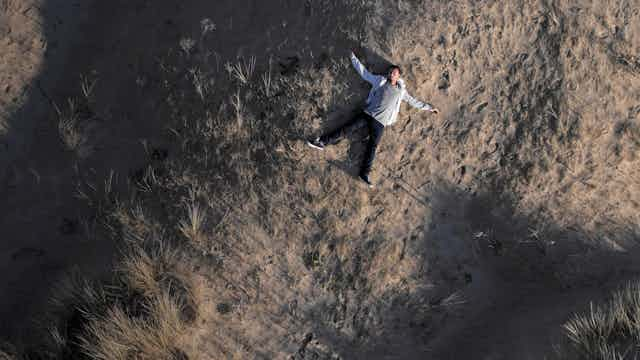One Antigone, two Medeas, three Oresteias: the list goes on. UK theatres are currently inundated with productions of Greek tragedy, hosting a series of superb productions often featuring high-profile stars more commonly found on the big screen. But tragedy isn’t the only thing on the up: classical epics are also seeing a surge in interest.
The Iliad and the Odyssey were composed as part of an oral tradition that involved travelling bards reciting tales about the Trojan war — amongst other things — in verse and to the accompaniment of music. Written down and ascribed to Homer around the eighth century BC, these long-form narratives can seem particularly alien in the instant gratification culture of Instagram and Twitter.
Indeed, when modern authors reinvent Homer they often filter the stories down to a single episode or relationship, as in Madeline Miller’s The Song of Achilles and David Malouf’s Ransom. Yet the age of box-set television and multi-instalment films invites an appreciation of the sheer scale of these epics, and increasing knowledge about their creation is ensuring that this is done in exciting, experimental ways.
Homer on stage
Take this summer’s staged reading of the Iliad. On August 14 a group of 60 actors gathered, first at the British Museum and later at the Almeida Theatre, to read Robert Fagles’s translation of the poem, from cover to cover, over 16 hours. The reading began a tad seriously (an hour before the museum opened) with Professor Simon Goldhill reciting the opening lines in ancient Greek to an audience predominantly consisting of Homer fans clutching their own well-worn translations.
Yet as the day progressed the dynamic changed: durational theatre fans, students on holidays (probably hoping to catch a glimpse of Ben Whishaw), and even curious passersby stopped to listen, enraptured by the spectacle and the narration. The Almeida’s witty live tweeting of narrative updates and a “SPEARCAM” made for an easy-to-follow and accessible epic, and the online live-stream (soon to be released as a podcast) even saw #Iliad trending on Twitter.
Then there’s the National Theatre Wales’s Iliad, currently playing. Mike Pearson and Mike Brookes have a history of innovative interpretations of the classics, previously directing Aeschylus’s 472 BC tragedy The Persians in a mock-Soviet village situated on MoD-owned land in Brecon Beacons. They also reinvented Shakespeare’s Coriolanus in an empty aircraft hanger.
The Iliad promises to solidify their reputation for gripping theatre that excavates something of the spirit of canonical texts and makes it speak to present politics. The promenade multimedia production can be seen either in four separate instalments or in two marathon all-day or all-night sittings.
Although the Iliad is, on the surface, a battle narrative, many of its key episodes take place after dark: the embassy to Achilles, Odysseus and Diomedes’ trespass into the Trojan camp, and King Priam’s ransom of Hector’s body. As such, I’ll be settling in for the overnight experience to capitalise upon the performance’s potential.
21st century Odysseys
It is not just the monumental scale of these narratives that appeals to today’s box-set generation, but also the pertinence of their themes to the modern world. Analogies can be made, for example, between Odysseus’s endless journey home to Ithaca and the voyages made today by refugees attempting to reach places such as Lampedusa.
I can also detect political overtones in the marketing for Simon Armitage’s upcoming Odyssey reinvention for Shakespeare’s Globe, in which the protagonist will be “chased by the authorities, damned by religious leaders, pursued by those looking for vengeance and head-hunted by fanatics”. Are Edward Snowden and Julian Assange the Odysseuses of the modern world?
The fact that not one, but two films of the Odyssey are now purported to be in pre-production certainly attests to the appeal of the epic’s length and subject matter. Rumours have been circling for years about a Warner Brothers Odyssey, but with Stalingrad director Fedor Bondarchuk apparently now signed on to direct it looks as if things might be moving forward. The film will have stiff competition, however, with Lionsgate Films re-assembling the creative team behind the Hunger Games to create a multi-installment adaptation of the epic as well.
If either film is anything like the most recent Homer-inspired blockbuster, namely Wolfgang Peterson’s 2004 Troy, it’ll be sure to raise a few eyebrows within academia. However, with 2015 rom-com The Boy Next Door (starring Jennifer Lopez) incredulously purporting that there is a) such a thing as a first-edition Iliad, and b) that it could be found “for a buck in a garage sale”, such increased attention to the poems can only, to my mind, be a positive thing.
When Goldhill opened the Almeida’s Iliad, he informed the audience that our gathering together was “remarkably Greek”. What is even more Greek is the practice of coming together, again and again, to hear the same tale spun together in different ways by different bards. I for one can’t wait to see how the epic fares in such a rich variety of formats, from the experimental to the commercial, and if this flurry of activity is anything to go by I’m not alone. I just need to find a #teamHector shirt and I’ll be good to go.

